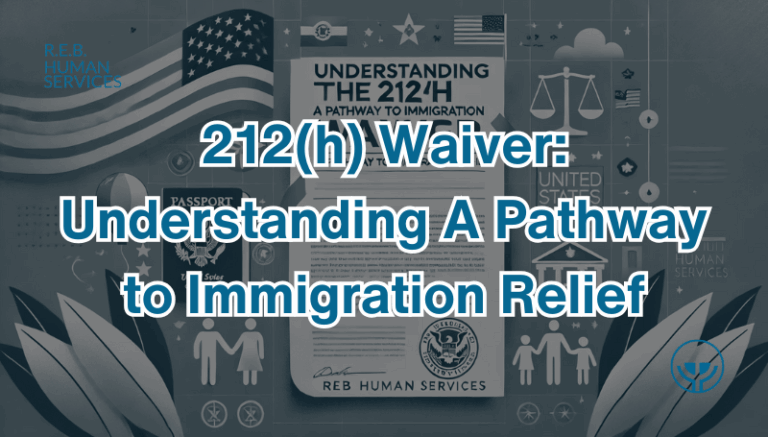212(h) Waiver: How Psychological Evaluations Strengthen Your Immigration Case
Navigating U.S. immigration law can be particularly complex for individuals with prior criminal convictions. The 212(h) Waiver, under the Immigration and Nationality Act (INA), offers a powerful legal opportunity to overcome inadmissibility and pursue lawful permanent residency.
But success often requires more than just legal arguments — it demands a compelling, well-documented personal narrative. That’s where a professional psychological evaluation can make a critical difference.
What Is the 212(h) Waiver?
Section 212(h) of the INA allows certain individuals deemed inadmissible due to specific criminal offenses to apply for a waiver, including:
- Crimes Involving Moral Turpitude (CIMT) – e.g., theft, fraud, assault;
- Two or more criminal convictions resulting in 5+ years of combined prison time;
- Prostitution or commercialized vice-related offenses;
- Simple possession of marijuana (30 grams or less).
Who Qualifies for the 212(h) Waiver?
To be eligible, the applicant must meet at least one of the following conditions:
- Rehabilitation and Passage of Time
The offense occurred more than 15 years ago, and the applicant demonstrates rehabilitation and that their admission is not contrary to U.S. welfare or security. - Extreme Hardship to U.S. Citizen or LPR Relatives
Denial of admission would cause significant emotional, psychological, or financial hardship to a qualifying relative (spouse, parent, or child who is a U.S. citizen or lawful permanent resident). - VAWA Self-Petitioners
Individuals eligible under the Violence Against Women Act (VAWA) may also apply under this waiver category.
Note: Certain offenses such as murder or torture-related crimes are not eligible for this waiver.
Why Psychological Evaluations Matter
A psychological evaluation is often a key component in building a compelling 212(h) waiver case. These evaluations provide clinically supported evidence of:
- Extreme hardship your qualifying family members would face if the waiver is denied;
- Personal rehabilitation and evidence of emotional growth, remorse, or behavioral change;
- The emotional and psychological context behind previous criminal behavior, including trauma, substance use history, or mental health diagnoses.
When supported by an experienced licensed clinician, a psychological evaluation adds credibility and persuasive clinical insight to the legal narrative.
Why Partner with R.E.B. Human Services
At R.E.B. Human Services, we specialize in immigration psychological evaluations tailored to waiver petitions like the 212(h). Our evaluations are:
- Conducted by licensed U.S. clinicians with experience in forensic reporting;
- Fully HIPAA-compliant and adapted to meet immigration court standards;
- Customized to the client’s background and legal case strategy;
- Delivered with a clear, trauma-informed approach that prioritizes both legal impact and human dignity.
We also collaborate closely with immigration attorneys — with written client consent — to ensure every report supports the legal argument with strength and clarity.
Get in Touch
If you are preparing a 212(h) Waiver case and need a reliable clinical partner, we’re here to help.
🌐 www.rebhumanservices.org
📧 [email protected]
📞 (802) 432-8882







